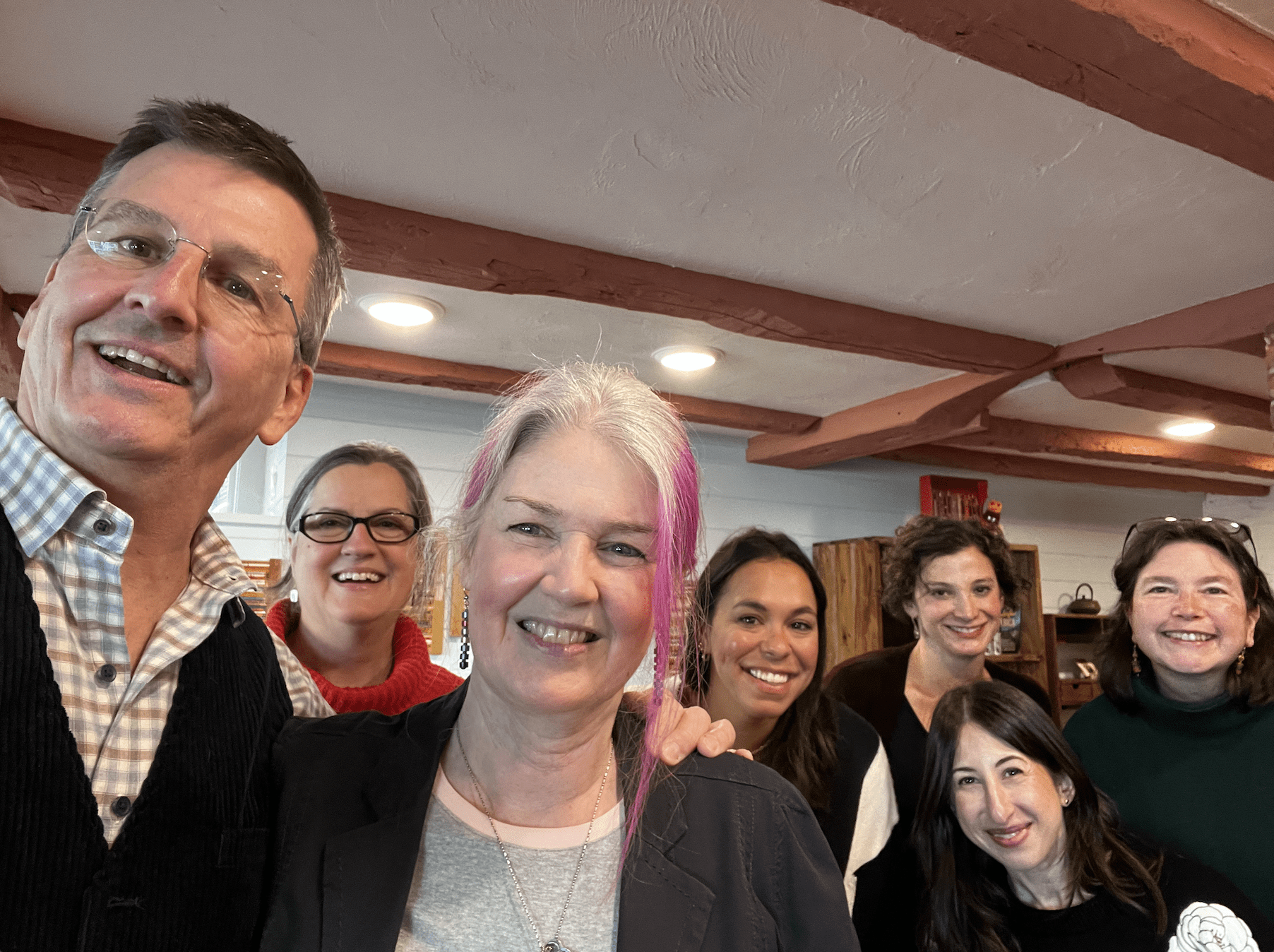A Year to Celebrate –— and Reflect On Our Shared Future

This past year has been one of massive (and at times radical) change. As a business, Wordsmithie thrived; but as a female business owner, the events of 2022 have given me pause. We’ll start with the things we celebrated this year as a company:
- In March, we received our official WBENC certification as a Woman-owned Business. While that may seem like a big “duh,” since I founded the company 12 years ago as a woman, becoming certified is an arduous process to prove that I’ve had majority ownership in the company since day one. This certification opens the door for opportunities for us to work with those seeking to hire certified DEI companies. Thanks to our certification, we’ve also had the pleasure of meeting and working with other DEI companies this year. We’re in the process of yearly recertification and look forward to attending the annual WBENC conference in Nashville in March 2023.
- In April, we opened our first official real-world office, at 2 Beach Street in Rockport, MA. We were born distributed in 2010 and largely remain so, but this wonderful space gives us a place to gather and work together as never before. Our team loves it so much that they’ve dubbed it “The Clubhouse.” We have desks for drop-ins, so come on by.
- In August, we made the Inc. 5000 list of America’s Fastest Growing Companies for the first time. With more than 31 million small businesses in the U.S., making the list puts us in rarefied company — an achievement owed to our remarkable team and loyal clients. I couldn’t be prouder or more humbled by our accomplishment.
So, yes, 2022 was a momentous year for Wordsmithie. But at the same time, 2022 was a fraught year in many ways, especially with the Supreme Court’s Dobbs v. Jackson decision to overturn the nearly 50-year-old Roe v. Wade decision.
I was fortunate to come of age during the Roe era. The rights of women to control our biological destiny — and, therefore, our personal and professional paths — is a key reason female entrepreneurs, artists, lawyers, scientists, journalists, physicians, and countless others have thrived in the past half-century. On its face, Roe may have been all about biological choices, but its impact has taken deep and abiding root in our culture and economy.
In 1973, the year that Roe became law, the U.S had 402,000 woman-owned businesses. In 2022, that number has risen to 12.3 million (a nearly 3000% increase). The growth and prosperity we’ve enjoyed in the U.S. since 1973 can be attributed, at least in part, to women. In short: the overturning of Roe isn’t just a “woman’s issue:” It’s an economic issue.
According to recent statistics gathered by Zippia,
- 42% of U.S. small businesses are owned by women.
- In 2022, women started an average of 1,821 new businesses per day.
- 16% of startups in the United States had at least one female founder.
- In the past 20 years, we’ve seen a 114% increase in the number of female entrepreneurs.
- Women-owned businesses generate an average of $1.8 trillion per year.
- As of 2022, 47% of women-owned businesses were owned by women of color.
- From 2007 to 2018, the number of women-owned small businesses increased by 58%.
Some may think that Roe was a standalone decision or an end-cap to the women’s movement, but it laid the foundation for changes that codified other long-overdue rights for women and all people across the country.
One key example: In 1974 — a year after the Roe became law — President Ford signed the Equal Credit Opportunity Act (ECOA), making it illegal to withhold access to personal or commercial lines of credit based on gender or marital status (as well as on other factors, including race, income level, and religion). Although in the 1960s, banks had finally begun allowing women to open checking and savings accounts on their own (without the signature of a husband, father, or brother), many financial institutions were still refusing women credit until ECOA became law.
Roe fueled a movement that still had miles to go — and still does, to this day.
The months after Dobbs felt stark, and over the summer, the approaching mid-term elections filled many of us with dread. But then something remarkable happened: The unprecedented overturn of Roe v. Wade became a driving force for voters across the country. This gives me hope that the clock on women’s choice hasn’t been turned back so much as paused while we regroup.
So, as we head into 2023, I’m reflecting on not only Wordsmithie’s milestones, but also recalling a year filled with joy and fear, anger and hope. Whatever comes next is not predestined, but we will have greater agency over our lives, bodies, and journeys if we continue to focus on what matters and fight for a future that builds on the strides we made in the past. Here’s to a happy and powerful new year.
Reach Out
Be Social
Content Marketing
Next In AI
Use AI to Inspire Your Writing: 7 Tips to Spark Creativity
Explore 7 tips to fuel your writing with AI, from sparking creativity to enhancing your style with Eve Connell's expert...


